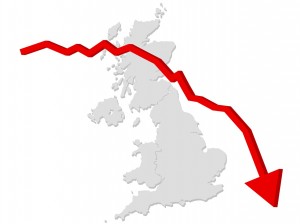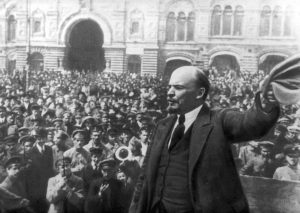 Arithmetic and statistics are useful tools for liars. A little massaging here, a little bending there, and suddenly a lie sounds plausible.
Arithmetic and statistics are useful tools for liars. A little massaging here, a little bending there, and suddenly a lie sounds plausible.
When it comes to liars in our government, they don’t have to distort their sums to make a false point. All it takes is applying arithmetic to issues that cry out for more sophisticated tools, those requiring more than just the ability to add and subtract.
The recently released report on the economic effects of EU immigration is a case in point.
Reducing the whole complex argument to a simple calculation, our leaders added up the amount of tax EU immigrants have paid, subtracted the amount of benefits they’ve received, including their use of social services, and declared triumphantly that the difference is plus £5 billion or some such.
Considering such clear-cut advantages, the likes of John Major must be downright daft when they beg those stern EU officials to agree, in their munificence, to let us reduce the scale of immigration.
If the 243,000 migrants arriving from Europe in the year ending in March 2014 delivered five billion to our economy, then, say, 20 million of them would add half a trillion, a third of our national debt. And 60 million would wipe the debt off altogether. So why not fling our doors open even wider?
This report deceives by asserting implicitly that the economic effect of mass immigration is easy to calculate. It isn’t.
A little illustration, if I may. Confronted with a choice of earning £2,000 a month at a local garage or receiving £1,500 from ‘social’, a Polish welder commendably chooses the dignity of honest labour.
Ostensibly the Exchequer thus saves £1,500 it otherwise would have to pay out, while getting an extra £600 or thereabouts in tax.
Granted, the welder and his family will be using the NHS and his children will get the full benefit of our ‘free education’ (which is in fact neither). But the net effect of his presence in England still looks positive, which is what the report seeks to prove.
However, do let us take a closer look at the arithmetic, before we consider more serious matters. If the Pole hadn’t graced our shores with his presence, how would the welder vacancy have been filled?
When a garage needs a welder, it can’t do without one. Hence it would have hired a native-born worker, and don’t tell me that, even considering the catastrophe going by the name of our comprehensive education, a Brit can’t be taught how to weld.
That same Brit now goes unemployed, collecting instead the same £1,500 the Pole would have picked up had he not taken the job.
Also, had the garage hired Kevin instead of Zbigniew, the Brit would probably have been paid more.
As I can tell you from my own experience going back to the time long before either Kevin or Zbigniew was born, new arrivals are so desperate for a job they’ll accept derisory pay. To expect that employers wouldn’t take advantage of their plight constitutes a woeful misreading of the innate fallibility of man.
A higher pay would have meant a higher tax, making the Exchequer even better off. By contrast, the overall downward pressure on wages exerted by new arrivals, makes employment less desirable for Brits, and welfare more so. After all, expecting people to work when they can get the same income by doing nothing would again be presuming too much on human goodness.
All things considered, the economic balance sheet begins to look much less attractive than the government report wants us to believe.
These are just the most transparent falsehoods. Among the hidden costs, quite apart from the unbearable extra pressure on our already creaking social services, is the toll exacted on the whole infrastructure.
Take our streets and roads, as one example among many. With a quarter million new arrivals every year (and this is just from the EU), British thoroughfares are becoming more crowded than ever, which increases the number of accidents, especially since not all immigrants come from countries where they have to take a stringent driving test.
And, again spoken from personal experience, even a competent driver needs quite some time to adjust to driving on the left. Meanwhile he’s likely to cause an accident, potentially requiring more NHS time.
Also increasing is the wear and tear of road surfaces, necessitating more frequent repair works and again making accidents more likely.
These are small and seemingly trivial examples, but they add up with sufficient persuasiveness to make us abhor the statistical larceny of the report.
Another, still purely arithmetical, falsehood is treating all immigrants from the EU as a homogeneous group, wherein average numbers actually mean something.
If you take the Duke of Westminster, Richard Branson and every member of my family, our average annual income will be in eight digits. On the basis of this perfectly accurate statistic, what do you think you’ve learned? The square root of zilch, is the answer.
Contrary to the assurances of EU champions, there isn’t, nor will there ever be, such a thing as a single European nation. Europe may cease to be an aggregate of states, but it will for ever remain an aggregate of nations.
And looking at, say, France and Bulgaria, it takes a blind man not to see they’re as different from each other as either of them is from Peru or Mexico.
Lumping together a French banker pulling down £1,000,000 a year in the City and a Romany beggar harassing pedestrians in Piccadilly can be done for one purpose only: to cheat.
All in all calculating the overall economic effect of mass EU immigration is difficult, but it’s not impossible. It would, however, take serious thought along with much gathering and classification of information, putting into the equation infinitely more variables than the half dozen or so used in the report.
What’s impossible to calculate is the cultural and social damage.
All arrivals from the EU have been raised in a culture and under a legal system based on different or, in the case of Eastern Europe, diametrically opposite principles from ours. The aforementioned French banker may be trusted to adapt, but what about the aforementioned Romany beggar?
Again the government resorts to the same trick of lumping the two together. This is sufficient to claim that crime falls, rather than rises, in areas where many immigrants live.
True enough, the arrival of thousands of French families into my part of London hasn’t noticeably made the streets unsafe to walk. But areas blessed with the blight of heavy Romanian and Bulgarian influx report altogether different results.
Yet even supposing that all EU immigrants are well-behaved, law-abiding and generally angelic, their presence beyond a certain critical mass is destructive.
A few thousand Poles here or there would add to the rich panoply of life, and I for one like the odd authentically Polish meal in a local restaurant. However, a few million of them, plus tens of millions of other foreigners, may well change England beyond a point where it remains England.
Such an outcome is precisely what the EU, aided and abetted by our ruling elite, craves. And, considering the credulity, or perhaps indifference, of a growing swathe of our population, they may just get what they want.
Alexander Boot’s new book, Democracy as a Neocon Trick, is available from Amazon.









Comments